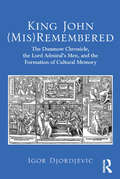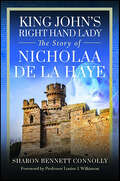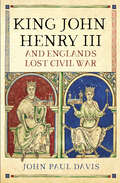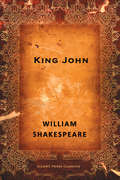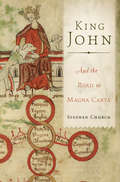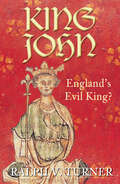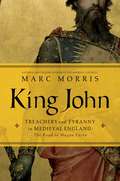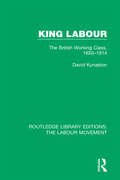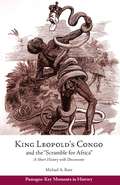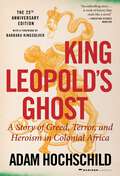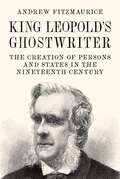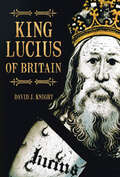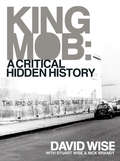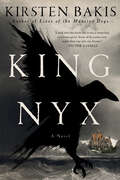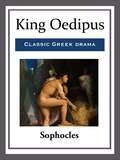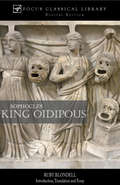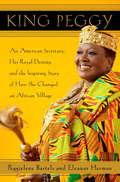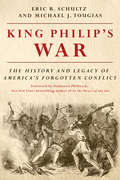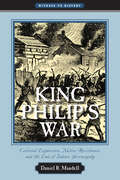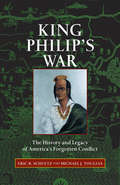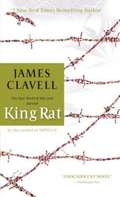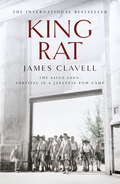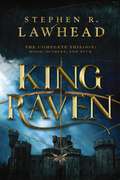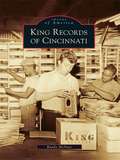- Table View
- List View
King John (Mis)Remembered: The Dunmow Chronicle, The Lord Admiral's Men, And The Formation Of Cultural Memory
by Igor DjordjevicKing John’s evil reputation has outlasted and proved more enduring than that of Richard III, whose notoriety seemed ensured thanks to Shakespeare’s portrayal of him. The paradox is even greater when we realize that this portrait of John endures despite Shakespeare’s portrait of him in the play King John, where he hardly comes off as a villain at all. Here Igor Djordjevic argues that the story of John’s transformation in cultural memory has never been told completely, perhaps because the crucial moment in John’s change back to villainy is a literary one: it occurs at the point when the 'historiographic' trajectory of John’s character-development intersects with the 'literary' evolution of Robin Hood. But as Djordjevic reveals, John’s second fall in cultural memory became irredeemable as the largely unintended result of the work of three men - John Stow, Michael Drayton, Anthony Munday - who knew each other and who all read a significant passage in a little known book (the Chronicle of Dunmow), while a fourth man’s money (Philip Henslowe) helped move the story from page to stage. The rest, as they say, is history. Paying particular attention to the work of Michael Drayton and Anthony Munday who wrote for the Lord Admiral’s Men, Djordjevic traces the cultural ripples their works created until the end of the seventeenth century, in various familiar as well as previously ignored historical, poetic, and dramatic works by numerous authors. Djordjevic’s analysis of the playtexts’ source, and the personal and working relationship between the playwright-poets and John Stow as the antiquarian disseminator of the source text, sheds a brighter light on a moment that proves to have a greater significance outside theatrical history; it has profound repercussions for literary history and a nation’s cultural memory.
King John's Right Hand Lady: The Story of Nicholaa de la Haye
by Sharon Bennett ConnollyIn a time when men fought and women stayed home, Nicholaa de la Haye held Lincoln Castle against all-comers. Not once, but three times, earning herself the ironic praise that she acted ‘manfully’. Nicholaa gained prominence in the First Baron’s War, the civil war that followed the sealing of Magna Carta in 1215. Although recently widowed, and in her 60s, in 1217 Nicholaa endured a siege that lasted over three months, resisting the English rebel barons and their French allies. The siege ended in the battle known as the Lincoln Fair, when 70-year-old William Marshal, the Greatest Knight in Christendom, spurred on by the chivalrous need to rescue a lady in distress, came to Nicholaa’s aid. Nicholaa de la Haye was a staunch supporter of King John, remaining loyal to the very end, even after most of his knights and barons had deserted him. A truly remarkable lady, Nicholaa was the first woman to be appointed sheriff in her own right. Her strength and tenacity saved England at one of the lowest points in its history. Nicholaa de la Haye is one woman in English history whose story needs to be told…
King John, Henry III and England’s Lost Civil War
by John Paul DavisIn 1204, the great Angevin Empire created by the joining of the dynasties of Henry II of England and his queen, Eleanor of Aquitaine, was fragmenting. At its height, the family landholdings had been among the largest the world had ever seen. From the border of England and Scotland in the north to south of the Pyrenees, it seemed there was nowhere in Europe destined to escape Plantagenet control. Yet within five years of his accession, King John’s grip on the family holdings was loosening. Betrayal against his father and brother, the murder of his nephew, and breaking promises made to his supporters were just some of the accusations levelled against him. When Philip II conquered Normandy, the chroniclers believed that an ancient prophecy was fulfilled: that in this year the sword would be separated from the sceptre. For the first time since 1066, England’s rule over the ancestral land was over. For John, troubles on the continent were just the beginning of a series of challenges that would ultimately define his reign. Difficult relations with the papacy and clergy, coupled with rising dissent among his barons ensured conflict would not be limited to the continent. When John died in 1216, more than half of the country was in the hands of the dauphin of France. Never had the future of the Plantagenet dynasty looked more uncertain. As the following pages will show, throughout the first eighteen years of the reign of Henry III, the future direction of England as a political state, the identity of the ruling family and the fate of Henry II’s lost empire were still matters that could have gone either way. For the advisors of the young king, led by the influential regent, William Marshal, 1st Earl of Pembroke, the effects of John’s reign would be long and severe. Successful implementation of the failed Magna Carta may have ensured his son’s short-term survival, yet living up to such promises created arguably a more significant challenge. This is the story of how the varying actions of two very different kings both threatened and created the English way of life, and ultimately put England on the path to its Lost Civil War.
King John: A History
by William ShakespeareTreachery and betrayal are the order of the day during the reign of King John of England (1199-1216). After he is forced to recognize the illegitimate son of his dead brother, King Richard I, King John finds himself under siege by the French king, Philip. Dealing with themes of royal legitimacy, succession, and the tenuous nature of diplomatic relationships, King John parallels issues prevalent in Shakespeare's own society at the time.
King John: And the Road to Magna Carta
by Stephen ChurchKing John has long been dubbed one of the "vilest” of English kings. He was brutish, untrustworthy, and ruled as a virtual tyrant--and yet his reign changed the course of English history. As renowned medieval historian Stephen Church argues, John’s importance has for too long been overshadowed by more heroic family members like Richard the Lionhearted and Eleanor of Aquitaine. John was a skilled political manipulator, but his traditional belief in the unchecked power of the sovereign became increasingly unpopular during his reign, leading to frequent confrontations between the king and his barons. In 1215, a group of barons rebelled in response to John’s repressive fiscal policies. The peace treaty that resulted was the Magna Carta, which enshrined the king’s obligation to rule within the framework of the law. King John offers an authoritative portrait of King John and the moment that signaled the end of the age of absolute monarchy and the dawn of constitutional law.
King John: England's Evil King?
by Ralph V TurnerKing John long ago acquired the epithet 'Bad', and he is reputed to be the worst of England's kings. Before his death in 1216, his desperate exploitation of his subjects for ever more money had turned him into the mythical monster of Hollywood legend. In marked contrast to his brother Richard, John appeared incompetent in battle, failing to defend Normandy (1202-04), and was unsuccessful in recovering his lost lands in 1214. A continuing crisis was a constant need for money, forcing John to drain England of funds for campaigns in France, demanding unlawful and oppressive new taxes. Adding to his evil reputation was an ill-tempered personality and a streak of pettiness and spitfulness that led him to monstrous acts, including murdering his own nephew. King John's unpopularity culminated in a final crisis, a revolt by the English baronage, 1215-16, aimed at subjecting him to the rule of law, that resulted in his grant of Magna Carta.
King John: The Road to Magna Carta
by Marc MorrisA rousing and authoritative new biography of the notorious King John, by Wall Street Journal bestselling author Marc Morris. King John is familiar to everyone as the villain from the tales of Robin Hood--greedy, cowardly, despicable, and cruel. But who was the man behind the legend? Was he truly a monster, or a capable ruler cursed by bad luck? In this new book bestselling historian Marc Morris draws on contemporary chronicles and the king's own letters to bring the real King John vividly to life. John was dynamic, inventive and relentless, but also a figure with terrible flaws. In two interwoven stories, we see how he went from being a youngest son with limited prospects to the ruler of the greatest dominion in Europe, an empire that stretched from the Scottish border to the Pyrenees. His rise to power involved treachery, rebellion and murder. His reign saw oppression on an almost unprecedented scale: former friends hounded into exile and oblivion; Wales, Scotland and Ireland invaded; the greatest level of financial exploitation since the Norman Conquest. A quarrel with the pope led to the king being excommunicated and England being placed under Interdict. John's tyrannical rule climaxed in conspiracy and revolt, and his leading subjects famously forced him to issue Magna Carta, a document binding him and his successors to behave better in future. The king's rejection of the charter led to civil war and foreign invasion, bringing his life to a disastrous close. Authoritative and dramatic, Marc Morris's King John offers a compelling portrait of an extraordinary man, whose reign marked a momentous turning point in the history of Britain and Europe.
King Labour: The British Working Class, 1850-1914 (Routledge Library Editions: The Labour Movement #23)
by David KynastonFirst published in 1976. This book covers working-class history from the decline of Chartism to the formation of the Labour Party and its early development to 1914. It gives a historical perspective to the essentially defensive, materialist orientation of twentieth century working-class politics. David Kynaston has sought to synthesise the wealth of recent detailed research to produce a coherent overall view of the particular dynamic of these formative years. He sees the course of working-class history in the second half of the nineteenth century as a necessary tragedy and suggests that a major reason for this was the inability of William Morris as a revolutionary socialist to influence organised labour. The treatment is thematic as much as chronological and special attention is given not only to the parliamentary rise of Labour, but also to deeper-lying intellectual, occupational, residential, religious, and cultural influences. The text itself includes a substantial amount of contemporary material in order to reflect the distinctive ‘feel’ of the period. The book is particularly designed for students studying the political, social and economic background to modern Britain as well as those specialising in nineteenth-century English history.
King Leopold's Congo and the "Scramble for Africa": A Short History with Documents (Passages: Key Moments in History)
by Michael A. Rutz"King Leopold of Belgium's exploits up the Congo River in the 1880s were central to the European partitioning of the African continent. The Congo Free State, Leopold's private colony, was a unique political construct that opened the door to the savage exploitation of the Congo's natural and human resources by international corporations. The resulting 'red rubber' scandal—which laid bare a fundamental contradiction between the European propagation of free labor and 'civilization' and colonial governments' acceptance of violence and coercion for productivity's sake—haunted all imperial powers in Africa. Featuring a clever introduction and judicious collection of documents, Michael Rutz's book neatly captures the drama of one king's quest to build an empire in Central Africa—a quest that began in the name of anti-slavery and free trade and ended in the brutal exploitation of human lives. This volume is an excellent starting point for anyone interested in the history of colonial rule in Africa." —Jelmer Vos, University of Glasgow
King Leopold's Ghost: A Story of Greed, Terror, and Heroism in Colonial Africa (Picador Classic Ser.)
by Adam HochschildIn the 1880s, as the European powers were carving up Africa, King Leopold II of Belgium seized for himself the vast and mostly unexplored territory surrounding the Congo River. Carrying out a genocidal plundering of the Congo, he looted its rubber, brutalized its people, and ultimately slashed its population by ten million--all the while shrewdly cultivating his reputation as a great humanitarian. Heroic efforts to expose these crimes eventually led to the first great human rights movement of the twentieth century, in which everyone from Mark Twain to the Archbishop of Canterbury participated. King Leopold's Ghost is the haunting account of a megalomaniac of monstrous proportions, a man as cunning, charming, and cruel as any of the great Shakespearean villains. It is also the deeply moving portrait of those who fought Leopold: a brave handful of missionaries, travelers, and young idealists who went to Africa for work or adventure and unexpectedly found themselves witnesses to a holocaust. Adam Hochschild brings this largely untold story alive with the wit and skill of a Barbara Tuchman. Like her, he knows that history often provides a far richer cast of characters than any novelist could invent. Chief among them is Edmund Morel, a young British shipping agent who went on to lead the international crusade against Leopold. Another hero of this tale, the Irish patriot Roger Casement, ended his life on a London gallows. Two courageous black Americans, George Washington Williams and William Sheppard, risked much to bring evidence of the Congo atrocities to the outside world. Sailing into the middle of the story was a young Congo River steamboat officer named Joseph Conrad. And looming above them all, the duplicitous billionaire King Leopold II. With great power and compassion, King Leopold's Ghost will brand the tragedy of the Congo--too long forgotten--onto the conscience of the West.
King Leopold's Ghostwriter: The Creation of Persons and States in the Nineteenth Century
by Andrew FitzmauriceA dramatic intellectual biography of Victorian jurist Travers Twiss, who provided the legal justification for the creation of the brutal Congo Free StateEminent jurist, Oxford professor, advocate to the Archbishop of Canterbury, Travers Twiss (1809–1897) was a model establishment figure in Victorian Britain, and a close collaborator of Prince Metternich, the architect of the Concert of Europe. Yet Twiss&’s life was defined by two events that threatened to undermine the order that he had so stoutly defended: a notorious social scandal and the creation of the Congo Free State. In King Leopold&’s Ghostwriter, Andrew Fitzmaurice tells the incredible story of a man who, driven by personal events that transformed him from a reactionary to a reformer, rewrote and liberalised international law—yet did so in service of the most brutal regime of the colonial era.In an elaborate deception, Twiss and Pharaïlde van Lynseele, a Belgian prostitute, sought to reinvent her as a woman of suitably noble birth to be his wife. Their subterfuge collapsed when another former client publicly denounced van Lynseele. Disgraced, Twiss resigned his offices and the couple fled to Switzerland. But this failure set the stage for a second, successful act of re-creation. Twiss found new employment as the intellectual driving force of King Leopold of Belgium&’s efforts to have the Congo recognised as a new state under his personal authority. Drawing on extensive new archival research, King Leopold&’s Ghostwriter recounts Twiss&’s story as never before, including how his creation of a new legal personhood for the Congo was intimately related to the earlier invention of a new legal personhood for his wife.Combining gripping biography and penetrating intellectual history, King Leopold&’s Ghostwriter uncovers a dramatic, ambiguous life that has had lasting influence on international law.
King Lucius of Britain
by David J KnightWhile everyone knows the story of King Arthur, few will have heard of King Lucius, a figure who has been consigned to myth and largely forgotten in the annals of British history. Examining the primary sources as well as the archaeological evidence for this second century king, David Knight convincingly refutes the generally accepted view expounded at the beginning of the twentieth century that identifies Lucius as King Abgarus of Edessa. King Lucius of Britain reconstructs the story of this fascinating figure, who applied to the Pope for formal baptism in AD 177, making him the first Christian King in Britain, and traces the history of the story of Lucius, separating the myth from reality and attempting to restore this King to his rightful place in British history.
King Mob: A Critcal Hidden History
by David Wise"I met a prostitute - Angela W - from the fishing port of Grimsby on the mouth of the Humber in the North of England. I instantly fell in love with her in an all consuming way. The pain inside my body, so massively accumulated with the death of hopes for the social revolution...was wrenched away from me as she slowly...shambled towards me." So begins Dave Wise's first hand account of King Mob, the late 60s London based political grouping formed after core members were excluded from the Situationist International. From a radical, working class perspective, Wise recounts their attempts to move "from the Situationist salon to the street", whilst frankly outlining identifying tactical, strategic and theoretical holes in the groups' day to day actions. Plans to blow up waterfalls, getting arrested on demos dressed as pantomine horses (the back end got off in court, on the grounds he didn't know what the front end was doing...), sharing oversized baked bean costumes with ultra-Maoists on Vietnam marches. Getting high and hungrily devouring Coleridge, De Quincey, Rimbaud, Marx, De Sade, Breton, Joyce and Hegel. Urinating over the lectern whilst declaring the death of art at the 1968 English Surrealist convention, being (falsely) put in the frame for the 1969 Newcastle School of Art firebombing; perhaps most infamously dressing up as Santa Claus in Selfridges toy dept, Xmas '69, and watching the chaos of consumerism unfold before them as crying children had the King Mob freely-gifted toys wrenched from their arms by employees. As the downturn of the early 1970's approached, and with it the apparent end of any hope for imminent social revolution, some of King Mob drifted off into various strands of bourgeois counterculture, whilst others faced up to the harsher realities of the "capsized utopia". Some didn't make it through, as an at times unintentionally moving epilogue here recalls. "A Critical Hidden History" is a living, breathing account of a brief moment in time, when the light got through the cracks in the wall, and a new world felt possible. As we career into the 21st century, the relevance of the playful, life affirming, non-hierarchical, anti-capitalists King Mob seems as great today as it ever did.
King Nyx: A Novel
by Kirsten BakisA haunting mystery about lost girls and the woman driven to find them, from the author of the contemporary classic Lives of the Monster Dogs. Anna Fort wants to be a supportive wife, even if that means accompanying her husband for the winter of 1918 to a remote, frozen island estate so he can finish his book as the guest of an eccentric millionaire. When she learns three girls are missing from a school run by their host, Anna realizes finding them is up to her—even if that means risking her husband’s career, and possibly her life. Her husband’s masterpiece-in-progress features strange meteorological anomalies along with wild speculations about “facts” he believes scientists hide from the public. Most people think Charles Fort is a crackpot. That’s about to change now that wealthy Claude Arkel is his patron. Yet Anna is sure something’s not right on Prosper Island, though the alarming return of her “troubles” makes her question her own sanity. Is the figure in the woods really the ghost of her long-lost friend Mary, or a product of her disturbed imagination? Accompanied reluctantly by a fellow guest, the elegant and troubled Stella Bixby, Anna embarks on a dangerous quest to find the missing girls before Arkel finds her—or her own mind unravels. A contemporary feminist tale with a dreamlike, gothic setting, King Nyx reintroduces readers, twenty-five years after her acclaimed debut, to one of our most astonishingly imaginative storytellers.
King Oedipus
by SophoclesWidely regarded as one of the greatest Greek tragedies, 'King Oedipus' (or 'Oedipus Rex') is the first play in the Oedipus trilogy (followed by 'Oedipus at Colonus' and then 'Antigone'). After defeating the Sphinx and freeing the kingdom of Thebes from her curse, the flawed hero unwittingly fulfills a prophecy that he would kill his father and marry his mother.
King Oidipous
by Sophocles Ruby BlondellThis is an English translation of Sophocles' famous tragedy of Oedipus and the fate he so much tries to avoid. Focus Classical Library provides close translations with notes and essays to provide access to understanding Greek culture.
King Peggy: An American Secretary, Her Royal Destiny, and the Inspiring Story of How She Changed an African Village
by Eleanor Herman Peggielene Bartels<P>The charming real-life fairy tale of an American secretary who discovers she has been chosen king of an impoverished fishing village on the west coast of Africa. <P> King Peggy has the sweetness and quirkiness of The No. 1 Ladies' Detective Agency series and the hopeful sense of possibility of Half the Sky. <P>King Peggy chronicles the astonishing journey of an American secretary who suddenly finds herself king to a town of 7,000 souls on Ghana's central coast, half a world away. Upon arriving for her crowning ceremony in beautiful Otuam, she discovers the dire reality: there's no running water, no doctor, and no high school, and many of the village elders are stealing the town's funds. <P>To make matters worse, her uncle (the late king) sits in a morgue awaiting a proper funeral in the royal palace, which is in ruins. The longer she waits to bury him, the more she risks incurring the wrath of her ancestors. Peggy's first two years as king of Otuam unfold in a way that is stranger than fiction. <P> In the end, a deeply traditional African town has been uplifted by the ambitions of its headstrong, decidedly modern female king. And in changing Otuam, Peggy is herself transformed, from an ordinary secretary to the heart and hope of her community. <P><b>A New York Times Bestseller</b>
King Philip's War (Revised Edition): The History And Legacy Of America's Forgotten Conflict
by Michael J. Tougias Eric B. SchultzThe harrowing story of one of America's first and costliest wars—featuring a new foreword by bestselling author Nathaniel Philbrick At once an in-depth history of this pivotal war and a guide to the historical sites where the ambushes, raids, and battles took place, King Philip's War expands our understanding of American history and provides insight into the nature of colonial and ethnic wars in general. Through a careful reconstruction of events, first-person accounts, period illustrations, and maps, and by providing information on the exact locations of more than fifty battles, King Philip's War is useful as well as informative. Students of history, colonial war buffs, those interested in Native American history, and anyone who is curious about how this war affected a particular New England town, will find important insights into one of the most seminal events to shape the American mind and continent.
King Philip's War: Colonial Expansion, Native Resistance, and the End of Indian Sovereignty (Witness to History)
by Daniel R. Mandell2010 Outstanding Academic Title, Choice MagazineKing Philip's War was the most devastating conflict between Europeans and Native Americans in the 1600s. In this incisive account, award-winning author Daniel R. Mandell puts the war into its rich historical context.The war erupted in July 1675, after years of growing tension between Plymouth and the Wampanoag sachem Metacom, also known as Philip. Metacom’s warriors attacked nearby Swansea, and within months the bloody conflict spread west and erupted in Maine. Native forces ambushed militia detachments and burned towns, driving the colonists back toward Boston. But by late spring 1676, the tide had turned: the colonists fought more effectively and enlisted Native allies while from the west the feared Mohawks attacked Metacom’s forces. Thousands of Natives starved, fled the region, surrendered (often to be executed or sold into slavery), or, like Metacom, were hunted down and killed.Mandell explores how decades of colonial expansion and encroachments on Indian sovereignty caused the war and how Metacom sought to enlist the aid of other tribes against the colonists even as Plymouth pressured the Wampanoags to join them. He narrates the colonists’ many defeats and growing desperation; the severe shortages the Indians faced during the brutal winter; the collapse of Native unity; and the final hunt for Metacom. In the process, Mandell reveals the complex and shifting relationships among the Native tribes and colonists and explains why the war effectively ended sovereignty for Indians in New England. This fast-paced history incorporates the most recent scholarship on the region and features nine new maps and a bibliographic essay about Native-Anglo relations.
King Philip's War: The History and Legacy of America's Forgotten Conflict
by Michael J. Tougias Eric B. SchultzKing Philip's War--one of America's first and costliest wars--began in 1675 as an Indian raid on several farms in Plymouth Colony, but quickly escalated into a full-scale war engulfing all of southern New England. At once an in-depth history of this pivotal war and a guide to the historical sites where the ambushes, raids, and battles took place, King Philip's War expands our understanding of American history and provides insight into the nature of colonial and ethnic wars in general. Through a careful reconstruction of events, first-person accounts, period illustrations, and maps, and by providing information on the exact locations of more than fifty battles, King Philip's War is useful as well as informative. Students of history, colonial war buffs, those interested in Native American history, and anyone who is curious about how this war affected a particular New England town, will find important insights into one of the most seminal events to shape the American mind and continent.
King Rat
by James ClavellThe time is World War II. The place is a brutal prison camp deep in Japanese-occupied territory. Here, within the seething mass of humanity, one man, an American corporal, seeks dominance over both captives and captors alike. His weapons are human courage, unblinking understanding of human weaknesses, and total willingness to exploit every opportunity to enlarge his power and corrupt or destroy anyone who stands in his path.From the Paperback edition.
King Rat: The Fourth Novel of the Asian Saga (The Asian Saga #4)
by James ClavellSet in Changi, the most notorious prisoner of war camp in Asia, King Rat is an heroic story of survival told by a master story-teller who lived through those years as a young soldier. Only one man in fifteen had the strength, the luck, and the cleverness simply to survive Changi. And then there was King.
King Raven: Hood, Scarlet, and Tuck (The King Raven Trilogy #Bks. 1-3)
by Stephen R. LawheadA completely re-imagined epic of the man known as Robin Hoodùavailable in one volume for the first time.For centuries, the legend of Robin Hood and his band of thieves has captivated the imagination. Now the familiar tale takes on new life as it boldly relocates the setting to the Welsh countryside and its dark forests. Hunted like an animal by Norman invaders, Bran ap Brychan, heir to the throne of Elfael, has abandoned his father's kingdom and fled to the greenwood. There, in the primeval forest of the Welsh borders, danger surrounds him--for this woodland is a living, breathing entity with mysterious powers and secrets. Bran must find a way to make it his own if he is to survive and become King Raven. From deep in the forest, Bran, Will Scarlet, and Friar Tuck form a daring plan for deliverance, knowing that failure means death for them all--and the dreams of the oppressed people of Wales. This acclaimed trilogy (Hood, Scarlet, Tuck) conjures up an ancient past and holds a mirror to contemporary realities. Prepare yourself for an epic tale that dares to shatter everything you thought you knew about Robin Hood.
King Records of Cincinnati
by Randy McnuttStarting with a few songs and a dream in 1943, King Records--a leading American independent--launched musical careers from a shabby brick factory on Brewster Avenue in Cincinnati's Evanston neighborhood. Founder Sydney Nathan recorded country singers Cowboy Copas, Hawkshaw Hawkins, Wayne Raney, and others and later added black acts such as James Brown and the Famous Flames, Bull Moose Jackson, Hank Ballard and the Midnighters, Lonnie Johnson, and Freddy King. Meanwhile, King also explored polka, jazz, bluegrass, comedy, gospel, pop, and instrumental music--anything that Nathan could sell. Although King's Cincinnati factory closed in 1971, the company's diverse catalog of roots music had already become a phenomenon. Its legacy lives on in hundreds of classic recordings that are prized by collectors and musicians.
